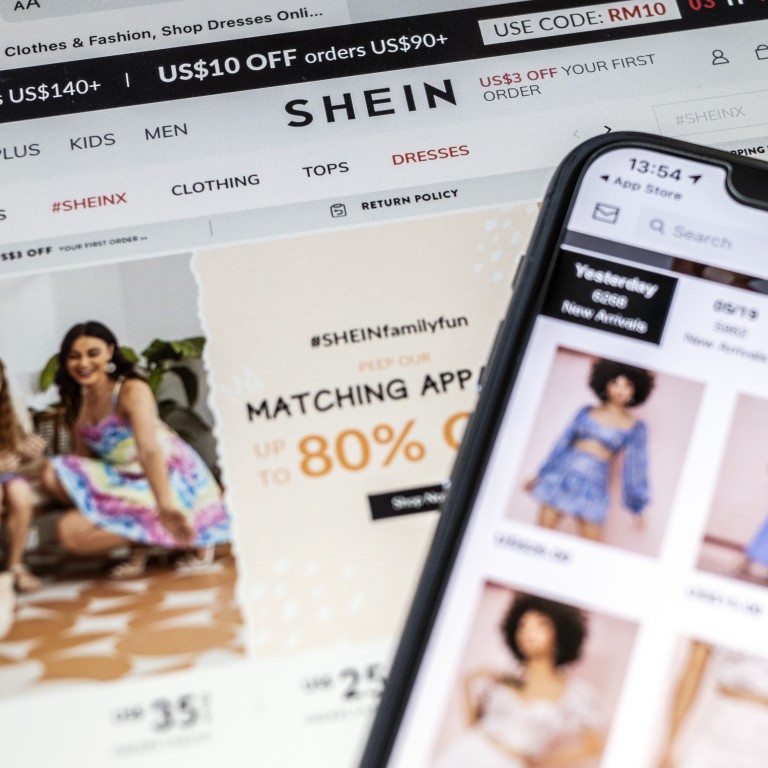
Slow down and think about fast fashion
- Chinese giant Shein is finding that becoming a global brand with so much public attention poses its own set of challenges
Shein, a Chinese online-only retailer of inexpensive fast-fashion clothes, and beauty and lifestyle products, is pushing a staggering valuation of US$100 billion in a new funding round from deep-pocketed investors. Yet its apparent meteoric rise raises both environmental and political issues such as encouraging waste by throwing away clothes after just a few wearings. As it becomes a full-fledged corporate retail giant, such inconvenient questions will come back to haunt it.
The latest valuation gives it a price tag exceeding the combined worth of Hennes & Mauritz (H&M) and Inditex’s Zara, and twice that of Fast Retailing, owner of Uniqlo. In an earlier funding round less than two years ago, it was valued at US$15 billion. Judging by sales, it is currently the biggest web-only fashion brand in the world.
Shein has benefited from new global consumer trends. Its biggest financial backers include such well-known financiers as Sequoia Capital, IDG Capital, Tiger Management, and Singapore’s Jafco. Its latest mouth-watering valuation is premised on the expectation that it would successfully raise funds from the US-based General Atlantic, which invests in companies with high growth potential.
Shein has also benefited from the Chinese crackdown on multiple private sectors as well as the continuing tussle between Beijing and Washington over trade and finance. These negative developments have resulted in a dearth of investible Chinese companies and made Shein an obvious choice. But all this couldn’t have happened without the big international investors buying into the thesis about the irresistible power of online retail platforms aimed at the Gen-Z.
Made in China but not for China: why Gen Z loves Shein
Meanwhile, the global pandemic has also channelled new consumption from travelling and IRL (in real life) experience towards online shopping. Shein has managed to more than triple sales in 2020 to US$10 billion last year. There are headwinds though. Legislations such as the America Competes Act may yet pose a problem for Shein hoping for a bonanza in the US market. Fast fashion also raises environmental concerns. The European Union is considering a law to make all clothes repairable and recyclable.
Shein is finding that becoming a global brand with so much public attention poses its own set of challenges.

